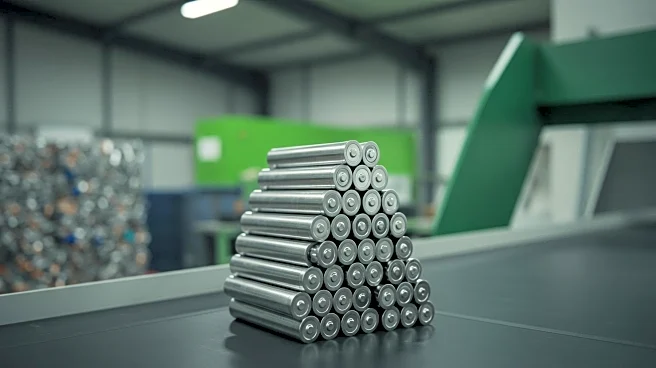What's Happening?
Research from Edith Cowan University highlights the importance of recycling lithium batteries as demand for electric vehicles and renewable energy storage increases. Lithium, a critical mineral, is often discarded with batteries that still retain 80% of their capacity. Recycling these batteries can secure access to lithium, reduce environmental impact, and support a circular economy. The Australian Department of Industry estimates that by 2035, Australia could generate 137,000 tons of lithium battery waste annually, presenting a significant opportunity for the recycling industry.
Why It's Important?
Recycling lithium batteries offers substantial environmental benefits, reducing land use, soil contamination, and greenhouse gas emissions compared to mining. It also conserves energy and water, making it a more sustainable option. Economically, the recycling industry could be worth billions, providing a profitable alternative to traditional mining. This shift supports the transition to a clean energy future by ensuring a steady supply of lithium for renewable technologies.
What's Next?
The recycling industry faces challenges, such as evolving battery chemistries and the need for investment in infrastructure. Addressing these issues will be crucial for maximizing the benefits of battery recycling. Governments and companies may need to collaborate on policies and technologies that facilitate efficient recycling processes and support the growth of this industry.
Beyond the Headlines
The move towards battery recycling also highlights the importance of sustainable resource management and the need for innovation in recycling technologies. As the demand for lithium increases, finding efficient ways to recycle and reuse this mineral will be essential for maintaining supply and reducing environmental impact.









